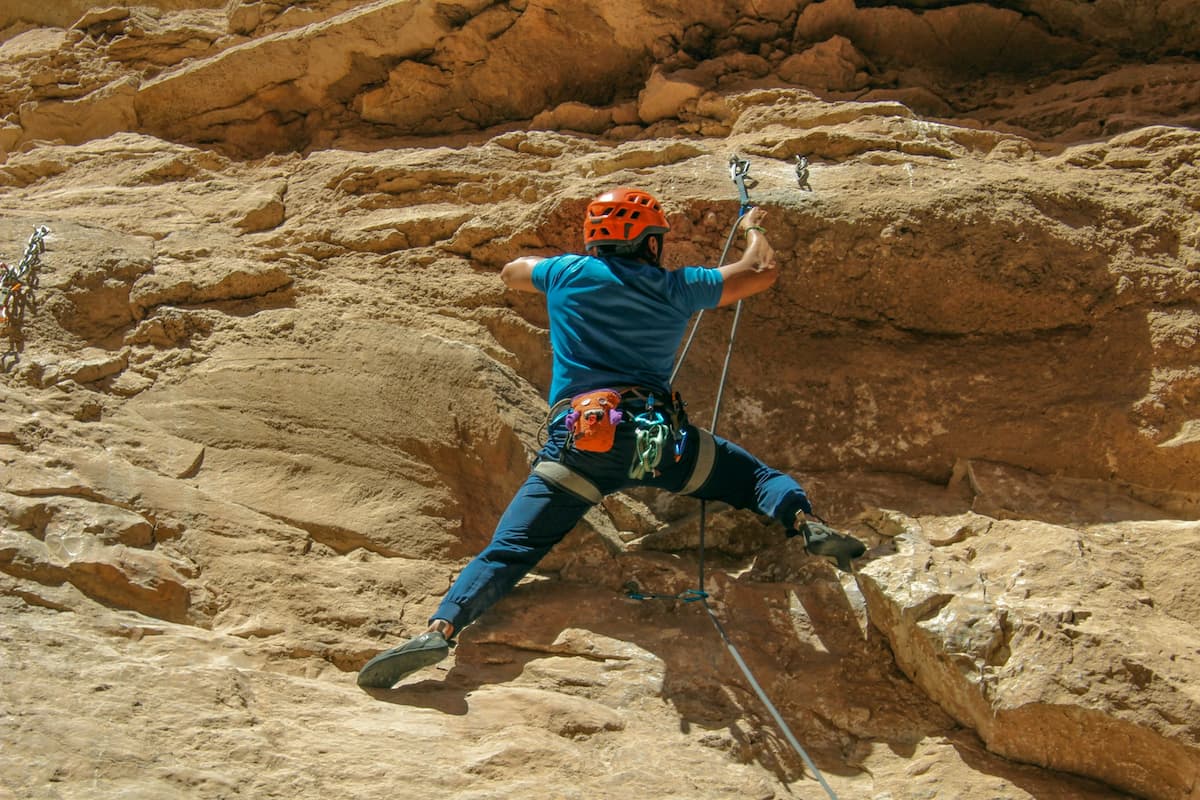Sports That Shape Future Leaders: Essential Soft Skills for Boys
Sports have long been celebrated for keeping kids active and healthy, but their impact goes far beyond physical fitness. For boys, engaging in the right sports can help shape them into future leaders by instilling valuable soft skills that last a lifetime. From teamwork and communication to resilience and confidence, these activities are less about competition and more about personal growth.
Let’s explore how different sports contribute to building leadership qualities in boys.
The Role of Sports in Developing Soft Skills
Soft skills—such as communication, adaptability, and problem-solving—are increasingly valued in both academic and professional settings. Unlike hard skills that can be taught in a classroom, soft skills are best developed through real-world experiences. Sports provide a natural environment for boys to develop these essential traits while engaging in an activity they enjoy. Every missed shot, successful pass, or team victory creates a teachable moment that prepares them for leadership roles later in life.
Team Sports: Learning Cooperation and Communication
Team-oriented sports like soccer, basketball, and baseball emphasise the power of working together. Boys quickly learn that no single player can win a game alone. Passing the ball, strategising plays, and celebrating wins collectively teach cooperation and respect for others’ contributions.
Team sports also sharpen communication skills. Whether it’s calling out plays on the field or discussing strategies in the locker room, boys gain confidence in expressing themselves clearly and respectfully. These are critical traits for future leaders who must articulate ideas and inspire groups of people.
Individual Sports: Building Confidence and Resilience
While team sports foster collaboration, individual sports are equally valuable for leadership development. Activities like tennis, martial arts, and track and field place boys in situations where their performance relies solely on their efforts. This fosters accountability—a key trait of strong leaders.
Take swimming, for example. Mastering strokes, beating personal records, and overcoming fatigue instil resilience. In fact, independent swimming encourages boys to trust their own abilities, teaching them perseverance in the face of challenges. Leaders often need to stand firm during setbacks, and individual sports train them for exactly that.
Adventure Sports: Courage and Adaptability
Adventure sports such as rock climbing, mountain biking, and skateboarding introduce boys to controlled risk-taking. These activities push them outside their comfort zones, teaching courage and adaptability—qualities leaders must embody when facing uncertainty.

The skateboarding benefits extend well beyond learning tricks at the skatepark. Skateboarding teaches balance, patience, and determination. Falling is part of the process, and every attempt helps build grit. Leaders must embrace failure as part of growth, and skateboarding offers a clear, hands-on way to practice that mindset.
Discipline Through Martial Arts
Martial arts disciplines like karate, taekwondo, or judo are often associated with self-defence, but their value in leadership development is profound. Boys learn discipline, respect for authority, and self-control—skills that contribute to emotional intelligence. The structured nature of martial arts encourages boys to follow instructions carefully while also giving them room to grow into confident decision-makers.
The Power of Sportsmanship
Sportsmanship is an overlooked but vital trait for boys who aspire to lead. Win or lose, showing respect to teammates, coaches, and opponents builds character. Boys who embrace fair play understand that true leadership isn’t about domination—it’s about humility, empathy, and uplifting others. These qualities resonate far beyond the field, shaping boys into compassionate leaders who value ethics and fairness.
Goal Setting and Time Management
Sports often require boys to juggle practice sessions, games, and schoolwork. This naturally teaches time management and prioritisation. Setting goals, whether it’s to improve a personal record or win a tournament, also nurtures ambition and focus. Leaders must often balance multiple responsibilities, and sports prepare boys for this balancing act from a young age.
Building Emotional Strength
Leadership is not just about leading others—it’s also about managing one’s emotions. Sports help boys handle pressure, cope with setbacks, and stay calm under stress. Facing a tough opponent, dealing with an injury, or working through a losing streak teaches emotional resilience. Leaders who stay composed during challenges are more likely to inspire confidence in those around them.
Why Soft Skills Matter for the Future
In today’s fast-changing world, technical expertise alone is not enough. Employers, educators, and communities all value individuals who can lead with empathy, communicate effectively, and adapt quickly. Sports provide the foundation for these abilities. For boys, engaging in a variety of physical activities is not just about fun—it’s about preparing for a future where leadership skills are in high demand.
Sports are far more than games; they are life lessons in motion. For boys, every practice session and every competition is an opportunity to develop the qualities that will help them lead tomorrow. Whether it’s teamwork from basketball, resilience from swimming, or courage from skateboarding, the skills they acquire shape not just athletes, but future leaders. Parents and mentors can play a crucial role by encouraging boys to participate in diverse sports and by reinforcing the values they learn on the field.
In the end, the true victory lies not in the scoreboard, but in the lifelong confidence, discipline, and empathy that boys carry forward as they grow into leaders.
![[AD] ✨ Festive magic for local families in the heart of Guildford ✨
We had the loveliest evening exploring the @guildfordilluminate light trail at Guildford Castle
The trail takes around 30–40 mins
with cosy stops for hot chocolate and toasting marshmallows, it’s a gorgeous Christmas activity for Surrey families.
It’s on until 4th January and makes the perfect festive plan:
🛍️ Christmas shopping in town
✨ The light trail
🍽️ Finish with dinner in Guildford
If you’re looking for a magical, stress-free festive outing with the kids — this is one to add to your Christmas list
📍 Guildford Castle, Castle St, Guildford GU1 3SX
#GuildfordWithKids #SurreyFamilies #ChristmasInSurrey](https://suburban-mum.com/wp-content/uploads/2018/09/589257185_18566118850016840_4432952740767953046_n-180x320.jpg)
![[AD] We went to the newly opened Cha Sha Kingston a couple of weeks ago, and wow — taste bud adventure unlocked! The boys devoured the masala fries and chicken tikka rolls, while we couldn’t get enough of that epic kebab butter curry 😍🍛.
It’s amazing value for food this tasty (and everyone left happy and VERY full!).
Delicious food, vibrant vibes and incredible value — the perfect combo for your next meal.
📍Cha Sha Kingston
43 Surbiton Road, KT1 2HG
🌐 chasha.co.uk
Other Cha Sha locations in Birmingham, Ilford, Southampton and Wembkey
#ChaSha #ChaShaKingston #KingstonEats #FoodieFinds #UKFoodie #FoodReview #KingstonUponThames #FamilyEats #FamilyDining #FoodieKids](https://suburban-mum.com/wp-content/uploads/2016/02/574770541_18560351146016840_6855048070839528040_n-180x320.jpg)

![[AD] We’re a cricket-mad family, so we’re buzzing that @thehundred is back this August! 🏏🔥
To get ready, M tried out the official FREE Activity Pack — and it’s brilliant! 🙌
Packed with fun games, creative challenges and sporty tasks, it’s perfect for getting kids hyped whether you’re at home or on the go.
👉Download yours now (link in bio)
@londonspirit @ovalinvincibles #EveryMomentCounts #TheHundred
#EnglandCricket #CricketFamily #TheHundredCricket #LondonBloggers #Cricket #CricketIsLife #kidsfun](https://suburban-mum.com/wp-content/uploads/2022/11/505472555_18531279601016840_7092520074819907569_n-180x320.jpg)



![[AD - Press visit]
We enjoyed the glorious sunshine this weekend with a trip to Brighton. We went on the @brightoni360official which is right by the sea front.
The i360 pod take a slow journey up, allowing you to take in views across Brighton and the South Downs 450ft above ground. There’s a bar inside with drinks and snacks available to purchase and the experience lasts 25 minutes.
Afterwards, we headed to the open air roller rink for a roller skating session!
The roller rink is:
⭐ Suitable for over 5s
⭐ £6.50 if you have your own skates or £9.50 if you need to hire them
⭐ 45 minutes per session
Full details to visit the i360 + skating
📍 Brighton i360, Lower Kings Road, Brighton BN1 2LN
🚗 Parking nearby (we parked in the Regency Square Car park)
🎟️ Prices start from £25.40 for an adult and £16.90 for a child
🕐 Opening hours are currently Sun-Fri 10.30am-18.30pm and until 19.30pm on Saturdays
☕️ Bar inside the i360, cafe and gift shop
Book tickets here:
https://tickets.brightoni360.co.uk/tickets/?_ga=2.195305772.1869001490.1689671753-1757164059.1689671753/#events?eventid=157](https://suburban-mum.com/wp-content/uploads/2015/04/417980235_313576471048632_3682382982231216432_n.jpg)

![[AD] ***Summer of fun at Barracudas Activity Camps!****
There is plenty for kids to do at @barracudas_activity_day_camps
From Tennis, Archery, Swimming, Motor Sports and more you can be sure that there will be something for kids aged 4.5-14. ⚽🏈🥅🎾🏓🏎️🏹🏊♂️🏉
You can book on a day by day basis - so it can fit in with any other days out/activities you have planned and there are early drop off and late pickup options available. Barracudas are also Ofsted registered so you can use your Childcare Vouchers too.
⭐⭐⭐Get £20 off a week or £4 off a day using my discount code: MARIA20⭐⭐⭐
#BarracudasActivityDayCamp #BarracudasActivityCamp #BarracudaAmbassadors #SummerHolidays #SchoolHolidays #Summer2023 #SummerCamp #DayCare #Camp #KidsCamp #surreymummy #surreymums #SummerOfFun #ActivityCamps #HolidayCamps #Childcare #SchoolHolidays #schoolholidaycamps](https://suburban-mum.com/wp-content/uploads/2024/07/353583570_625625966167953_545896259645102575_n.jpg)



![[AD] We have some super exciting news...we have been chosen to be Laser Quest Ambassadors, and the boys are over the moon!
We are really lucky that our local Laser Quest (@laserquestkingston) is just around the corner from us. It means we can pop in of a weekend or anytime during the school holidays, and with summer just around the corner, I know Laser Quest will be one of our go-to places for some family fun.
As well as games of Laser Quest, there are also VR experiences and arcade amusements too. To find out a bit more about how Laser Quest works, you can read my blog post: https://www.suburban-mum.com/laser-quest-kingston/ (clickable link in bio)
Don't forget to keep an eye out for our Laser Quest posts - I'm going to be giving away two family passes to use at Laserquest Kingston!
If you can't wait and want to head down to Laser Quest to try it out, use the code SUMMER30 for 30% off your booking. The code is valid from now until the end of August 2023 and can be used on Laser Quest games and birthday party bookings.
#LaserquestAmbassador #Laserquest #LaserquestKingston #ActivitiesForKids #FamilyFun #DaysOutWithKids #Lasertag #LaserquestVR #Kingston #ThingsToDoInKingston #SurreyFamilyDaysOut #ThingsToDoWithKids #RainyDayFun #SurreyMummy #SurreyLife #LifeWithKids #LifeWithBoys #familyfunday](https://suburban-mum.com/wp-content/uploads/2015/04/353230107_797358078406942_2405522556733455165_n.jpg)

![[AD] The sun has finally made an appearance and the boys have been making the most of it by spending it
in the garden.
They’re go-to is always football and they’ve been trying to improve their aim and accuracy with the new Messi Foldable Footlball goal from the #MessiTrainingSystem range.
I love the fact the goal is foldable, making it easy to store away when not in use. It is also lightweight so you can effortlessly pack it up and take it to the park or to a friend’s house.
The Messi Foldable Football Goal retails at £36 and can be purchased from @argos
You can read my full review here: https://www.suburban-mum.com/messi-foldable-football-goal/
#TrainLikeMessi #FoldableFootballGoal #FootballSkills #OutdoorFun #LionelMessi #LeoMessi #FootballAtHome #OutdoorKids #JustGetOutside #OutdoorsAndFree #ScreenFreeKids #WhateverTheWeatherKids @flair_gp](https://suburban-mum.com/wp-content/uploads/2015/04/341194882_615024710178056_41977149395989448_n.jpg)

![[AD] We are absolutely thrilled to announce that we are Barracuda Ambassadors again this year.
With Easter just around the corner, the boys were sent the @barracudas_activity_day_camps new camp kit in preparation for the school holidays.
There’s a wide range of activities for kids aged 4.5 - 14 including Tennis, Archery, Basketball, Arts & Crafts and more.
If you like the sound of Barracudas, find out more over on their website. You can also save £20 a week or £4 a day, using my discount code: MARIA20](https://suburban-mum.com/wp-content/uploads/2024/07/336812306_765234558514317_685553691647241974_n.jpg)





